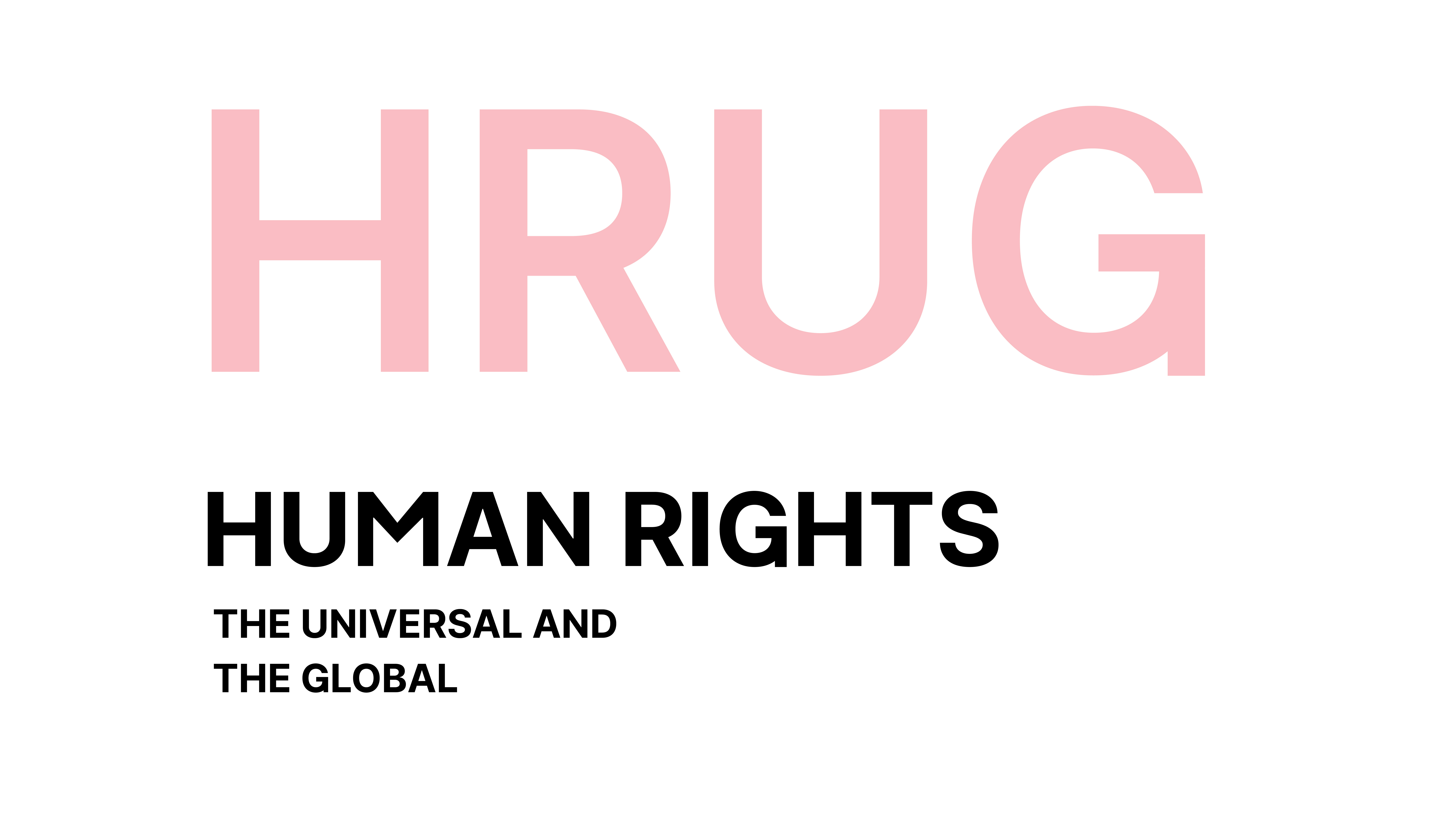On June 27, 2025, the HRUG regular seminar on “Systemic Challenges on Global Governance in 2025 and beyond” was successfully held. This seminar mainly focused on technological disruption, regional conflicts and trade frictions in global governance and their profound impacts on the international human rights protection system. The seminar was presented by Associate Professor Li Juan (a researcher of CSU Human Rights Center), and chaired by Professor Peter Herrmann (also a researcher of CSU Human Rights Center). Professor Mehmet Okyayuz from the Department of Political Science at Middle East Technical University in Turkey, Stephen Brawer (chairman of the Belt and Road Institute in Sweden), Asena Topcubasi, Tunahan Ali Usta and other scholars participated in the discussion.
Peter Herrmann pointed out that the world is experiencing an unprecedented governance crisis, and the traditional international order and multilateral mechanisms are facing severe tests. This seminar aims to conduct in-depth analysis of the structural problems in the global governance system and explore possible paths to rebuild effective international cooperation mechanisms through academic dialogue.
With “systemic challenges in global governance” as the core, Li Juan systematically analyzed the three major challenges faced by the current international community. She first presented that there was a significant regression in global AI regulation in the first half of 2025. Major economies such as the United States, the European Union, Japan, and China have slowed down or even halted the process of AI regulation. She asserted that this trend stems from the fact that the complexity of AI technology has surpassed the regulatory capacity of governments, and geopolitical competition has made AI a core element of national security. When governments abandon their regulatory responsibilities, it will grant excessive power to large technology companies and pose a systemic threat to basic human rights. She then analyzed the destructive impact of regional conflicts on the international legal system. Although both sides in the Russia-Ukraine conflict have exercised restraint by not attacking nuclear facilities, the indiscriminate bombings and terrorist attacks in the Gaza Strip have almost destroyed the laws of war system established by the Geneva Conventions. Even more alarming is that the direct confrontation between Israel and Iran over nuclear facilities has pushed the balance of nuclear deterrence to a dangerous edge. The third challenge is the international trade conflicts represented by the Sino-US trade frictions, which have evolved into the systemic destruction of international rules by utilitarianism and power politics. Some countries give priority to narrow national interests, bypass international rules and multilateral mechanisms, and seriously undermine the basic principles established by the UN Charter.
Faced with multiple challenges, Li Juan put forward specific schemes to rebuild the global governance system: re-establish multilateralism as the core principle, adhere to building the international order based on international rules, strengthen the role of the United Nations and promote the reform of the Security Council, promote multi-polar cooperation, and allow developing countries and emerging economies to play a greater role.
In the discussion session, participants had in-depth exchanges on technological governance, AI security, emerging rights structures and other issues. Tunahan Ali Usta paid attention to the security risks of AI technology. Li Juan responded that current AI security research lags far behind technological development, so the international cooperation is needed to deal with this global challenge. Peter Herrmann expressed his profound observations on how large technology companies challenge traditional national power. Li Juan took the recent conflict between Elon Musk and Donald Trump as an example to analyze the complex relationship between technological power and political power, and pointed out the problem of interest conflicts in the current self-regulation model. Mehmet Okyayuz raised questions about the internal and external driving forces for UN reform. He questioned whether the transformation of the UN can only be promoted by internal forces or requires the intervention of external mechanisms. Li Juan proposed that UN reform requires both the internal return to the basic principles of the UN Charter and the promotion of external forces. She pointed out that the fundamental reason for the weakened role of the UN is that some major countries try to interfere in international affairs and give priority to their own national interests regardless of the damage to UN principles and the established international order. She emphasized that some superpowers interpret and apply international rules in their own way, which distorts the rules-based international order. Asena Topcubasi questioned how international rules can better protect human rights. Li Juan responded that the rules-based international order does need reform, and its minimum standards should be consistent with international human rights standards. Regarding the role of BRICS countries in global governance, she held a positive attitude, insisting that the BRICS cooperation mechanism provides an important platform for building a more fair and inclusive international order.
Finally, in her concluding speech, Li Juan emphasized that the current global governance system is facing unprecedented challenges, but crises also contain opportunities for change. Only through real multilateral cooperation, returning to the basic principles of the UN Charter, and finding a balance between promoting technological innovation and protecting human rights, can a more effective and resilient global governance framework be built.
2025年6月27日,HRUG定期研讨会之“技术颠覆、地区冲突与贸易摩擦——2025年全球治理面临的三重挑战”主题会议顺利召开。本次研讨会主要聚焦于2025年全球治理面临的系统性挑战及其对国际人权保护体系的深远影响。本次研讨会由中南大学人权研究中心黎娟副教授主讲,中心研究员Peter Herrmann教授主持,土耳其中东科技大学政治学Mehmet Okyayuz教授、瑞典“一带一路”研究所所长Stephen Brawer、Asena Topcubasi、以及Tunahan Ali Usta等学者参与研讨。
Peter Herrmann指出,当前全球正经历前所未有的治理危机,传统的国际秩序和多边机制面临严峻考验。此次研讨会旨在通过学术对话,深入分析全球治理体系的结构性问题,并探讨重建有效国际合作机制的可能路径。
黎娟以“全球治理的系统性挑战”为核心,系统分析了当前国际社会面临的三大主要挑战。她首先指出,2025年上半年全球AI监管的显著倒退,美国、欧盟、日本、中国等主要经济体都放缓或停滞了AI监管进程。她认为,这一趋势源于AI技术复杂性超越了政府监管能力,以及地缘政治竞争使AI成为国家安全核心要素。当政府放弃监管责任时,将赋予大型科技公司过度权力,并对基本人权构成系统性威胁。她随后分析了地区冲突对国际法体系的破坏性影响。虽然俄乌冲突中双方保持不攻击核设施的克制,但加沙地带发生的无差别轰炸与恐怖袭击几乎摧毁了《日内瓦公约》确立的战争法体系。更令人震惊的是,以色列与伊朗在核设施问题上的直接对抗将核威慑平衡推向危险的边缘。第三个挑战是以中美贸易摩擦为代表的国际贸易冲突,这已经演变为功利主义与强权政治对国际规则的系统性破坏。一些国家优先考虑狭隘的国家利益,绕过国际规则与多边机制,严重削弱了《联合国宪章》确立的基本原则。
面对多重挑战,黎娟提出了重建全球治理体系的具体方案:重新确立多边主义为核心原则,坚持基于国际规则来构建国际秩序,强化联合国的作用并推进安理会改革,推动多极化合作,让广大发展中国家与新兴经济体发挥更大的作用。
在互动讨论环节,与会学者就技术治理、AI安全、以及新兴权利结构等问题展开深入交流。Tunahan Ali Usta关注AI技术的安全风险问题,黎娟回应指出当前AI安全研究严重滞后于技术发展,需要国际社会协调合作应对这一全球性挑战。Peter Herrmann提出了关于大型科技公司挑战传统国家权力的深刻观察,黎娟以马斯克与特朗普的近期冲突为例,分析了技术权力与政治权力之间的复杂博弈关系,并指出当前“自我监管”模式存在的利益冲突问题。Mehmet Okyayuz就联合国改革的内外部动力提出问题,他质疑联合国的转型是否只能依靠内部力量推动,还是需要外部机制的介入。黎娟认为,联合国改革既需要内部回归《联合国宪章》基本原则,也需要外部力量推动。她指出,联合国作用被削弱的根本原因在于一些主要国家试图干预国际事务,优先考虑自身国家利益而不顾对联合国原则和既定国际秩序的破坏。她强调,某些超级大国按照自己的方式解释和应用国际规则,这种做法扭曲了基于规则的国际秩序。Asena Topcubasi就国际规则如何更好地保护人权提出质疑,黎娟回应认为基于规则的国际秩序确实需要改革,其最低标准应该与国际人权标准保持一致。关于金砖国家在全球治理中的作用,她持积极态度,认为金砖合作机制为构建更加公正、包容的国际秩序提供了重要平台。 最后,黎娟在总结发言中强调,当前全球治理体系正面临前所未有的挑战,但危机也孕育着变革的机遇。只有通过真正的多边合作,回归《联合国宪章》的基本原则,在促进技术创新与保护人权之间找到平衡,才能构建更加有效和具有韧性的全球治理框架。
Transcription: Yuxin Wang, Tengyu Long; Translation: Yaxing Bai
